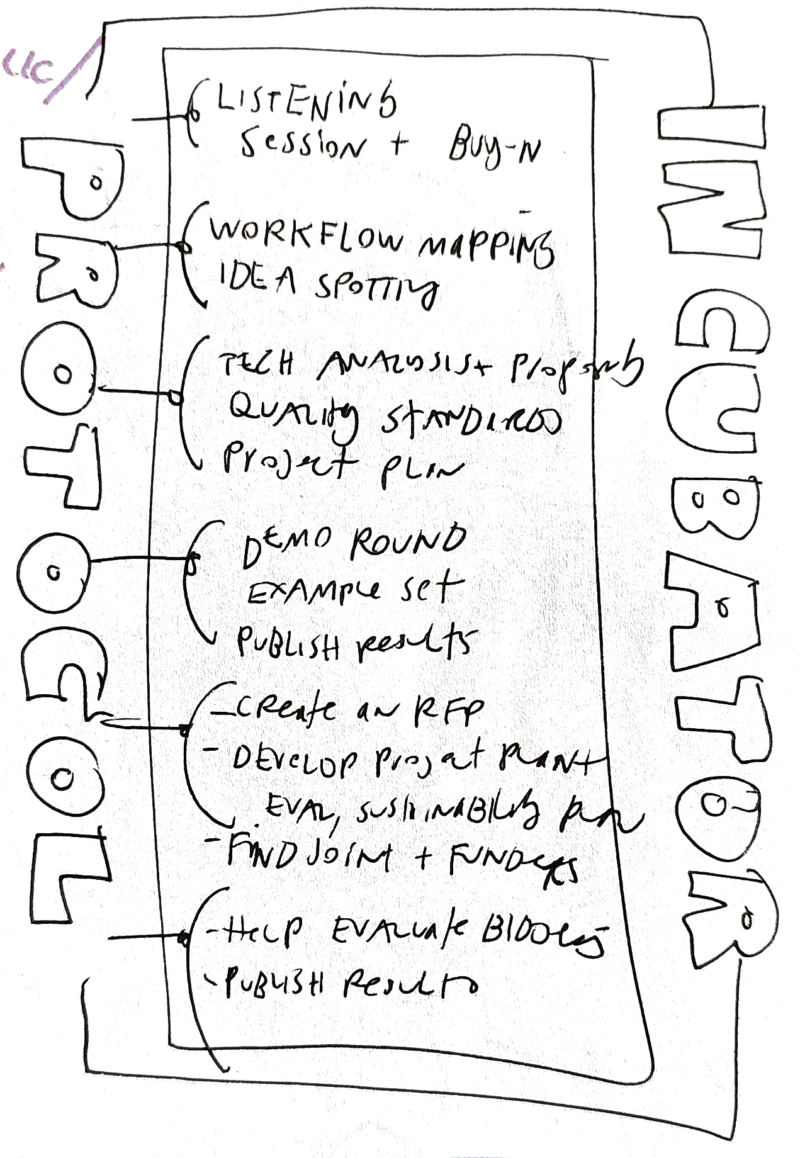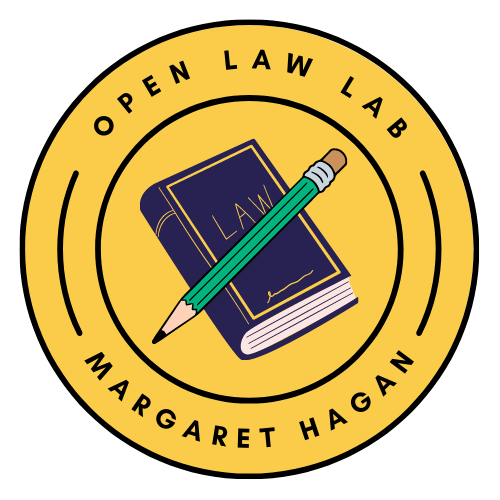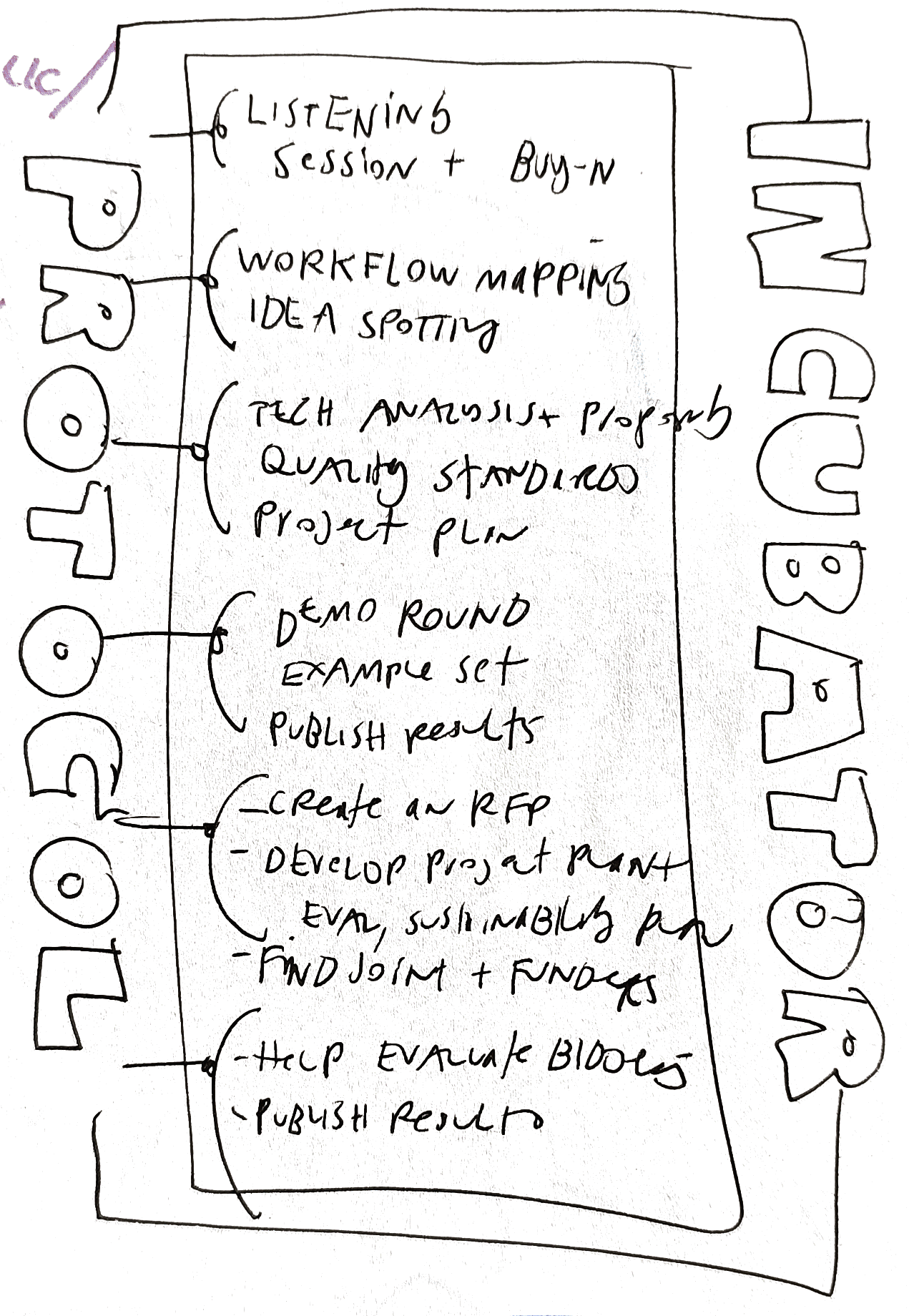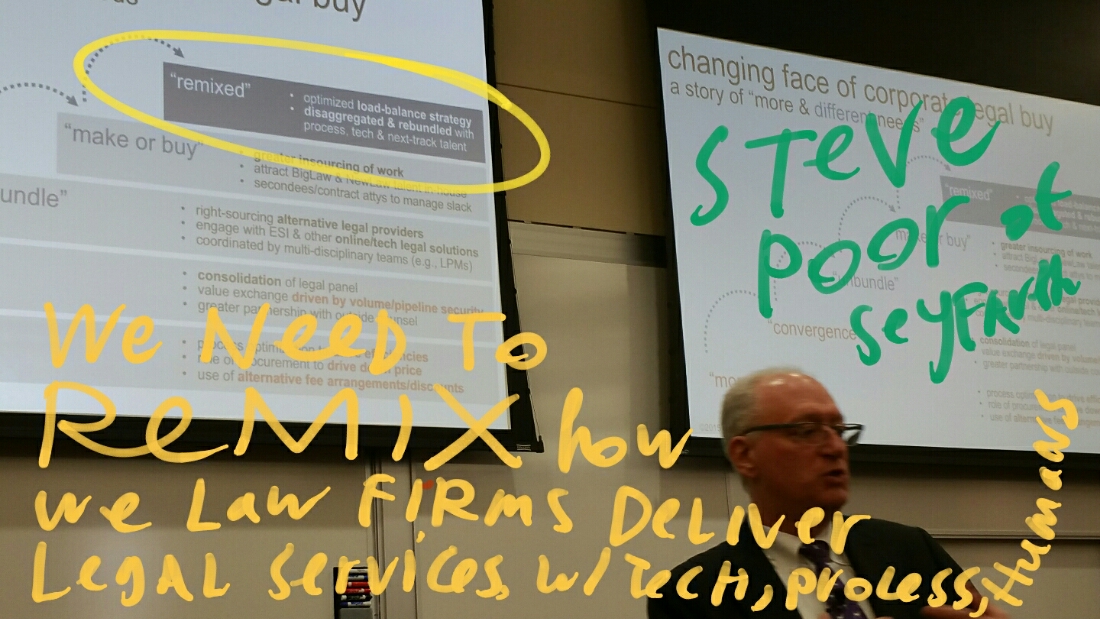With the new wave of excitement & innovation energy that has come with generative AI over the past year, I have been reflecting on what university groups are good at (and bad at) when it comes to public interest technology-based innovation.
Earlier in my work, I had thought about iterative cycles of innovation, with university groups partnering with frontline service providers throughout each part of the cycle:
- Scoping of policy challenges and current problems, to find the overall target for where innovation is needed
- User research into people’s lived experiences, needs, and preferences related to this challenge, to understand what a key opportunity for improvement might be
- System research into the laws, policies, procedures, norms, and provider ecosystem in the status quo
- Framing of specific design briefs for innovation
- Brainstorming & prototyping new innovations, with early-stage tests
- Piloting in the field to measure the performance of a given innovation, and to spot opportunities for refinement
- Helping the service provider take over the technology project, to continue operating it and iteratively improving it, based on the evaluation the university has run
This university-supported innovation cycle may happen, and it may work out for all the stakeholders: the university group, the service provider, and the public to be served.
But especially with the new AI interest & a desire from service providers for AI-focused innovation work, I’ve been thinking of a different kind of innovation cycle — with the university involved in some sessions but not all.
Most universities are not good at the later stage: pilots, maintenance, and extended relationships. They are not staffed or resourced to do multi-year projects that involve iterative, best-in-class technology development. But their quick-moving, research-focused nature does make them great for the earlier stages.
Especially in the new AI wave, it’s better to think explicitly about universities as Incubators of demo projects and early-stage evaluations — and then a convener to help identify funders and vendors, draft robust RFPs and evaluation benchmarks, and do continued evaluation of other groups’ execution of a new innovation project in the field.

That means that universities, through hands-on lab and clinic classes or through dedicated staff projects, can partner with public interest organizations to help them scope possible innovation efforts, map their workflows and where AI and other innovations could have a positive impact, hypothesize what technology systems could deliver this workflow improvement, and then build and test initial versions of these tech systems to evaluate them.
But the university group would have an exit plan, so that a technology-design group that has a sustainable business model & a long-term commitment to the technology solution’s success can take over in the pilot, iteration, and full release stages. The university group can help the service provider (like a legal aid group or court) make a very strong, precise RFP that attracts the right kind of tech-design vendor, and that also holds them to clear quality benchmarks, to ensure that the vendor delivers a solution that lives up to the vision and makes the impact that originally motivated the work. The early stages of R&D work hopefully will produce datapoints that can also make the value of the project clear to funders and supporters.
With this kind of intentional incubator role, universities can help service providers start off innovation projects that they don’t have the strategic capacity to do themselves – -but then hand off the work to other groups that have more ability to execute and sustain great digital innovations.



